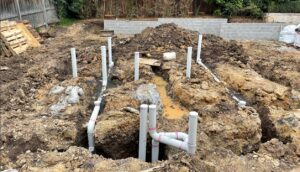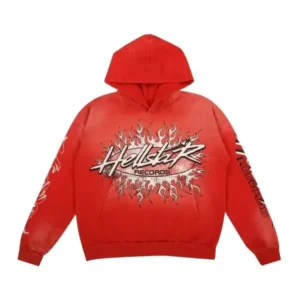
Hollow section suppliers in Malaysia | Power Metal & Steel Sdn. Bhd.
Every building project begins with a plan, but solid plans rely on solid materials. One of the most important elements in any structural construction is a hollow section. These steel shapes support frames, columns, and temporary scaffolding. Choosing dependable hollow section suppliers affects safety, cost, and performance on site.
In this guide, you will learn how to find a supplier that delivers quality products. How modular scaffolding fits into the picture, and how companies like Power Metal & Steel play a key role in supporting safe, strong builds across Malaysia.
Why Choosing the Right Supplier Matters?
A reliable supplier ensures every steel piece meets standards. Poor-quality steel bends, rusts, or breaks, putting lives and timelines at risk. Reliable hollow section suppliers offer more than materials; they provide peace of mind.
Choosing well means:
- Less time fixing or replacing damaged steel
- Fewer delays from wrong or late orders
- Stronger support for inspections and approvals
This decision influences every part of the project, from planning to handover.
What Are Hollow Sections?
Hollow sections are steel tubes with square, rectangular, or round shapes. They give strength while staying light. Builders use them for beams, frames, posts, and temporary works.
Benefits of Hollow Sections:
- Lightweight but tough – Easier to lift, safer to use
- Clean welds – Smooth connections at joints
- Resist corrosion – Better against rain and damp
Builders label them as SHS (Square), RHS (Rectangular), or CHS (Circular). Each serves a unique purpose in structure and design.
What to Look for in a Good Supplier?
Choosing a supplier means asking the right questions and checking their track record. Good suppliers do more than deliver steel — they help prevent project headaches.
Supplier Traits Checklist
| Quality | Why It Matters |
| Material testing provided | Proves the strength and quality of every piece |
| Consistent sizes | Avoids cutting errors on-site |
| Prompt delivery | Keeps your schedule on track |
| Easy communication | Fixes problems before they grow |
| Traceable stock | Connects batches to trusted mills |
Go beyond marketing. Visit the warehouse. Speak with past clients. And always ask for proof of recent test results.
Ask About Certifications
Ask every supplier if their steel comes with test documents. These are often called Material Test Certificates (MTCs). They show:
- Strength and stress limits
- Chemical makeup (carbon, manganese, etc.)
- Exact dimensions
Also, check whether they follow:
- BS EN standards (used in Malaysia and Europe)
- ASTM codes (used in the US and Asia)
These standards help ensure your project stays safe and legal.
Understanding Modular Scaffolding
Modular scaffolding is a system of steel tubes and joints used to reach high places. It’s safer and faster than traditional wooden setups. Hollow sections are often used in this framework.
Why Modular Systems Work:
- They lock together firmly
- Workers move faster and safer
- They adjust easily to different heights
Steel strength matters here. A bent tube weakens the entire scaffold. That’s why solid hollow sections form the backbone of many modular systems.
Beyond Quality: Reliability on the Job
Even good steel fails if it shows up late or damaged. Site teams should monitor every delivery.
Check:
- The condition of the steel (dents, rust, missing labels)
- Whether the sizes match your order
- If certificates arrive with the batch
You can also set up a supplier scoring system.
How to Vet a New Supplier?
Before signing contracts, take these five steps:
- Request past project references – Ask who they’ve worked with and what type of jobs they handled.
- Visit their yard – Walk through their warehouse. Look for poor stacking, rusty stock, or uncovered steel.
- Ask about sourcing – Good suppliers know exactly where their steel comes from.
- Inspect packaging – Proper wrapping prevents transit damage.
- Get a trial batch – Test small orders before full commitments.
These checks take time. But they save far more later.
Local vs. International Supply
Malaysia has grown its local steel supply chain in recent years. Buying local gives real advantages:
- Faster delivery – Less time in customs or ports
- More flexibility – Easier to make changes
- Stronger support – Local firms understand regional standards
Companies like Power Metal & Steel help fill this role in Johor Bahru and Kuala Lumpur. Their experience shows the value of working with suppliers who live and work where you build.
Sustainability and Steel
Steel production affects the environment. But smart suppliers reduce their footprint.
Here’s what to look for:
- Does the supplier recycle leftover steel?
- Do they reduce packaging waste?
- Do they transport efficiently?
These steps show responsibility. Builders now look at a supplier’s impact, not just their inventory. Working with conscious suppliers helps your own Environmental, Social, and Governance (ESG) score.
Common Pitfalls to Avoid
Don’t get caught by these common mistakes:
- Choosing by price only – Cheap steel often hides weak quality.
- Skipping background checks – Always speak with former clients.
- Trusting without testing – Always inspect samples.
- Rushing orders – Leave time to adjust and switch suppliers if needed.
A little homework protects big investments.
What Good Partnerships Look Like?
Strong relationships bring better service. Once you find a solid supplier, keep them close.
Good supplier partnerships bring:
- Early warnings on stock shortages
- Custom solutions to unusual problems
- Help during audits or certification reviews
See them as part of your project team, not just a vendor. Shared trust builds better sites.
Going One Step Further: Inspection and Supervision
Project engineers should lead on-site inspections of every delivery.
Here’s what they should watch:
- Visual checks: Any bending, oil residue, rust, or coating defects
- Measure lengths: Even small mismatches can cause trouble
- Review markings: Ensure heat numbers and standards are printed on the steel
Keep a checklist and logbook for each batch. If an issue comes up later, your records can protect your team.
Final Thoughts
Your project is only as strong as its weakest part. Picking the right hollow section suppliers reduces risk and increases reliability. Every column, scaffold, or beam depends on solid steel.
Whether you’re using modular C60 scaffolding or framing walls, the steel must meet the mark. You don’t want surprises halfway through a pour or just before inspection.
Follow this guide to evaluate your suppliers effectively. Ask questions, walk through their yard, and review their documentation. Pay attention to how they manage their personnel and waste, not just their handling of steel.
With suppliers like Power Metal & Steel, Malaysian builders can move forward with confidence. You don’t need perfect steel. You need trusted, tested steel — and a team that stands behind it.




